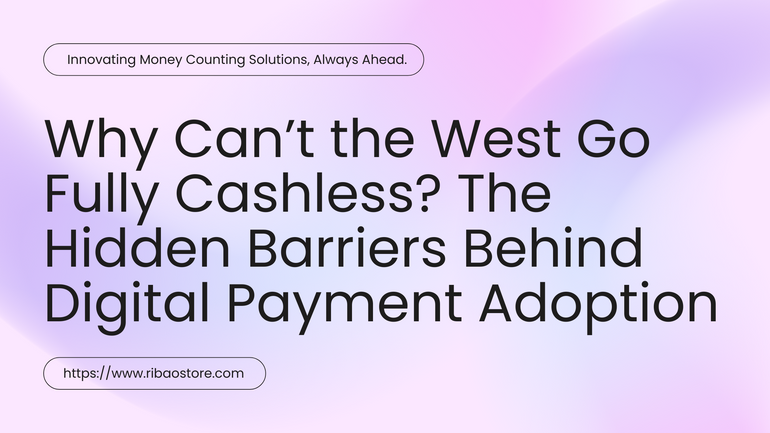When Markus, a German engineer, visited Shanghai for the first time, he was amazed by how effortlessly people paid for everything with their phones—from street food to high-speed trains. Back home in Berlin, he tried to go cashless for a week, only to hit roadblocks: his favorite bakery only accepted coins, his landlord demanded a bank transfer, and a taxi driver refused his card.
"Why can China do it, but we can’t?" he wondered.
The truth is, while cashless societies offer speed, security, and convenience, Western countries face deep-rooted challenges that slow—or even prevent—full adoption. Here’s why.
1. Privacy vs. Convenience: The Trust Divide
In Sweden (one of the most cashless nations in the West), cash transactions have dropped to just 9% of purchases. Yet, backlash is growing. Elderly Swedes and rural communities protest, fearing:
-
Total surveillance (every digital payment leaves a trace).
-
Bank dependency (what if your account gets frozen?).
-
Cyber vulnerability (hacks, scams, and tech failures).
"Cash is freedom. Digital is control." — Swedish anti-cash activist
Meanwhile, in China, where social trust in tech giants and the government is high, people prioritize convenience over privacy concerns.
2. Fragmented Banking Systems: Too Many Players, Too Little Unity
In the U.S., paying with your phone might mean:
-
Apple Pay
-
Google Pay
-
Venmo
-
Zelle
-
Or a dozen other apps
Unlike China’s Alipay/WeChat duopoly, Western payment systems are decentralized and competitive—great for choice, terrible for universal adoption. Small businesses often stick to cash to avoid juggling multiple platforms.
Fun fact: In Germany, 40% of transactions are still in cash—partly because Germans distrust digital monopolies.
3. The Unbanked and Underbanked Problem
In the U.S., 6% of households (14M people) have no bank account, while 16% are "underbanked"—relying on cash, check-cashing stores, or prepaid cards. Reasons include:
-
Poor credit history (denied accounts).
-
Distrust in banks (especially post-2008 crisis).
-
High fees (minimum balances, overdraft charges).
China, meanwhile, leapfrogged traditional banking by letting people pay via mobile apps without needing a bank account—something Western fintech struggles to replicate.
4. Cultural Attachment to Cash
-
Europe’s love for anonymity (Germans call cash "anonymous freedom").
-
Tipping culture (U.S. service workers prefer cash tips to avoid taxes).
-
Emergency preparedness (Americans stockpile cash for disasters).
"When the power goes out, cash still works." —Prepper slogan
In contrast, China’s rapid urbanization and government-backed digital yuan (e-CNY) made cashless living the default.
5. Regulatory and Infrastructure Hurdles
-
Slow adoption of QR codes (unlike China’s instant standardization).
-
Strict anti-money laundering (AML) laws making digital payments cumbersome.
-
Legacy banking systems resistant to change (U.S. still uses checks!).
China’s top-down policy approach (e.g., mandating QR code payments) allowed it to move fast. Western democracies? Not so much.
The Bottom Line: Can the West Ever Catch Up?
The West could go cashless—but it would require:
✔ Stronger government/business coordination (like China’s e-CNY push).
✔ Solving the unbanked crisis (mobile payments for all).
✔ Rebuilding trust in digital systems (post-Facebook, post-Equifax).
Until then, cash remains king in much of the West—not because it’s better, but because the alternatives aren’t ready.
What about you? Could you live without cash? Share your thoughts below!







